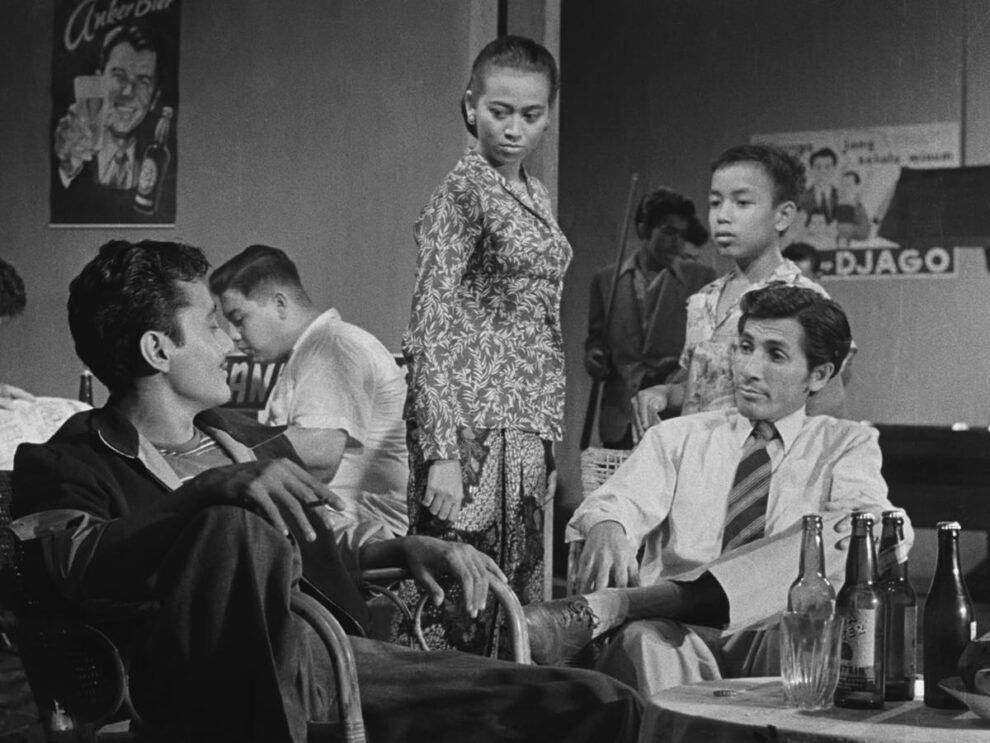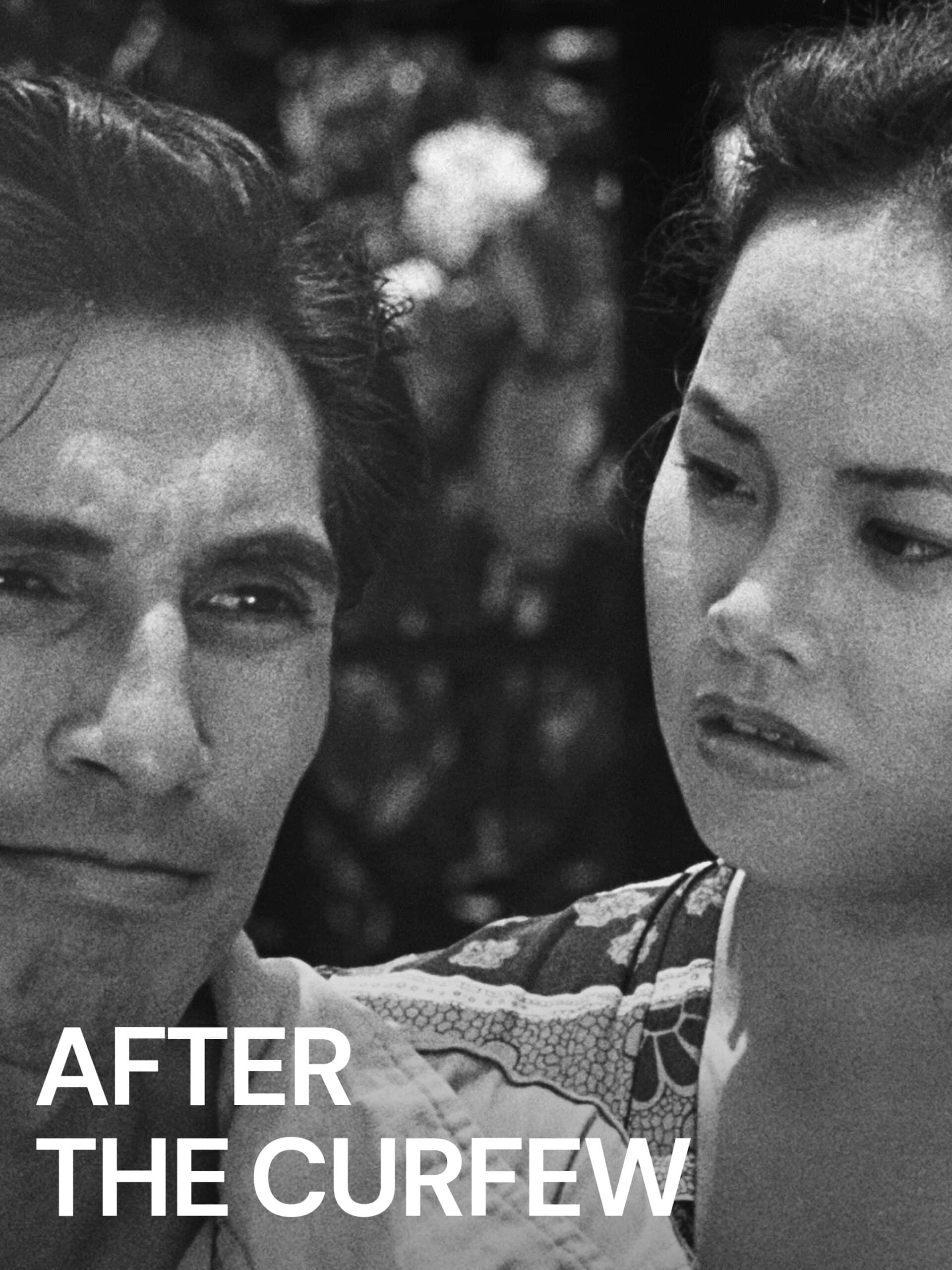By Adrian D. Mendizabal
Usmar Ismail's recently restored “After the Curfew” revolves around a soldier returning to his former life in the bustling city of Bandung, Indonesia, only to find himself increasingly alienated by the American-influenced modernity prevalent there.
Buy This Title
by clicking on the image below
Set in postwar Indonesia following the nation's struggle for independence from Dutch colonizers (1945-1949), the film reflects the shaping of Indonesia's contemporary historical and political landscape. This period also gave rise to significant global alliances, notably the Bandung Conference of 1955, uniting nations of the Global South against colonialism and neocolonialism, with the Philippines among the participating countries. Nationalist, democratic, and communist ideals proliferated in postwar Indonesian society, championed by figures like Sukarno, the leader of Indonesia's anti-colonial movement against the Dutch. During this period, the sense of impending freedom was palpable, reflected in the mise-en-scene that portrays Indonesian society still steeped in revolutionary fervor but gradually embracing a more Westernized way of life.
At the heart of this societal shift is the protagonist/anti-hero, Iskandar, a former revolutionary soldier grappling with his newfound existence. Reuniting with his fiancée Norma, former comrades and acquaintances like the infrastructure developer Gafar, brothel owner Puja and his companion Laila, as well as his former military superior-turned-governor Gunawan, Iskandar navigates these encounters, attempting to reconcile his past with an uncertain future.
For Iskandar, the Indonesian nationalist revolution defines the true reality that everyone must experience. It constitutes the site of maximal change, the historical turning point of his nation that seemingly slips into ordinariness and oblivion when faced with Indonesian postwar contemporary life which seemingly forgets what happened to the struggle for independence.
Check also this interview
For Iskandar, the Indonesian nationalist revolution represents the ultimate reality that all must confront, a pivotal moment in his nation's history. It constitutes the site of maximal change, the historical turning point of his nation that seemingly slips into ordinariness and oblivion when faced with Indonesian postwar contemporary life.
“After the Curfew” masterfully argues for the irreconcilability between the revolutions fought on the frontlines and the societal transformations that follow. Through Iskandar's alienation and disillusionment, one sees the incomplete nature of such social revolutions. On a broader scale, it contends that true social revolution eludes postwar Indonesia, with the old order persisting and bourgeois values and feudal structure retaining their dominance. It subtly critiques American cultural imperialism, embodied in Laila's aspiration for a more modern, Americanized lifestyle portrayed in magazines like LIFE.
In addition, the filmmaker posits that a revolution's success hinges on its ability to fundamentally alter societal norms and behaviors, echoing Maoist principles in cultural revolution. In postwar Indonesia, as depicted in the motion picture, capitalism prevails, leaving revolutionaries like Iskandar disconnected from a society that fails to align with their ideals. It argues that the new American-influenced Indonesian society metaphorically extinguishes the revolutionary spirit, foreshadowing the tragic events of the 1966 CIA-backed communist purge, which claimed the lives of countless intellectuals and activists, further underscoring its central thesis.
In conclusion, “After the Curfew” stands as a poignant cinematic exploration of the complexities surrounding postwar Indonesia's transition from revolutionary fervor to modernity. Through the lens of protagonist Iskandar's alienation and disillusionment, Usmar Ismail skillfully examines the tension between the ideals of the nationalist revolution and the societal changes that ensued. With its nuanced portrayal of the struggle to reconcile past and present, coupled with its commentary on the enduring influence of imperialism and capitalism, what emerges is a thought-provoking reflection on the nature of social revolutions and their lasting impact on individual lives and collective consciousness.
This review first appeared in Omnitudo as part of The Big Continent: Asian Cinema Challenge.
















